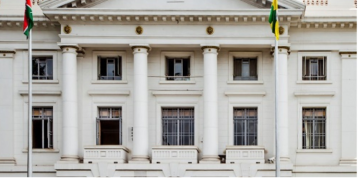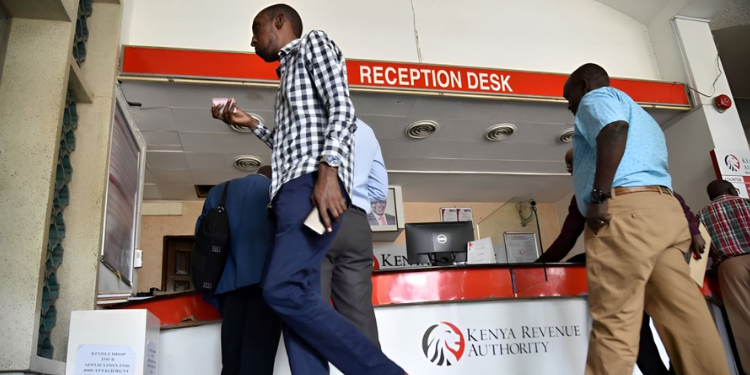The Kenya Revenue Authority (KRA) has shared principal tax reminder messages to individual taxpayers ahead of the June 30, 2025, deadline.
The messages are part of an ongoing tax amnesty campaign targeting those with unpaid principal taxes.
Taxpayers who settle their principal tax before the deadline will have accumulated penalties and interest waived.
In one of the messages shared by KRA, a taxpayer was reminded to settle Ksh77,479 by June 30.
“Our records indicate that you owe principal tax of Ksh 77479.75 as at 31/12/2023. Please settle by 30/06/2025 to enjoy 100% waiver on penalties & interest,” read part of the tax amnesty message to a Kenyan.
Kenyans’ reactions to the issue
A section of Kenyans who received the messages has since raised concerns, unsure whether they owe tax or if it’s an error.
“Looks like KRA has decided that we must pay for the odious debt now, or what? Why am I getting messages that I owe tax for 2023, a year I was still on Campus,” said @aztronist, a Kenyan taxpayer.
Other citizens expressed their frustrations, saying they have been compliant but still subjected to the principal tax.
“Every year, I’ve been paying my taxes as required, and I file my tax returns in time. Today, for the first time, I’m getting this message from KRA,” complained an X user, @Prroh.
However, tax experts clarified that receiving the message means one likely has unresolved tax obligations, which may be minimal or substantial depending on the cause.
Possible Causes of Outstanding KRA Tax
“There are several reasons why a taxpayer may have outstanding principal tax,” explained Peter Ndirangu, an expert in finance and taxation.
One of the most common is an actual tax liability, where a person files a return showing a positive tax amount but fails to pay it, either knowingly or due to a lack of understanding.
Another cause is filing errors, such as forgetting to include allowable tax relief like personal relief, insurance relief, or making incorrect pension declarations. These errors can lead to an inflated tax liability.
Also, it might result from PAYE reconciliation issues, where an employer may have deducted Pay As You Earn (PAYE) from an employee’s salary but failed to remit it to KRA.
Also Read: KRA Explains Plans of Accessing Private Data in Finance Bill Proposal
“In such cases, the employee appears non-compliant in KRA’s system even though deductions were made,” Ndirangu said.
Steps to Confirm Tax Compliance
“Kenyans are encouraged to confirm their tax status to avoid penalties. The simplest way is to apply for a Tax Compliance Certificate (TCC) via the iTax portal,” Ndirangu advised.
After logging in, users should go to Certificates > Apply for Tax Compliance. If there are any pending issues, the system will indicate them.
Another method is to try generating eSlip through the I-Tax portal. This is done under Payments > Payment Registration. If the system fails to create an eSlip, it usually means there are no pending tax obligations.
Also Read: KRA Changes Process of Filing PAYE Returns; New Step by Step Process
Taxpayers can also choose to visit the nearest KRA station for further assistance, especially where employer remittances need to be verified.
“However, due to the filing rush, queues are expected,” he advised.
Follow our WhatsApp Channel and X Account for real-time news updates.











































































KRA….Why send a message on the last days when you know the amount due as the systems are yours.
Also some of these back taxes have been resolved. Why has the system not updated itself or is there mischief amongst your officers and IT to just scare people.
These notifications are totally against the KRA service charter and should be stopped as they do not come with any evidence or supporting document.
Why should the public accept them when the KRA requires the public to prove payments have been made or when we have an objection or claim.
UNFAIR PRACTICES
The government should avoid such penalties
This one decoupage business Men and women
Tax compliance
Tax compliance certificate
I filed VAT returns on 13/04/2025 yet I am constantly being asked to pay a penalty for late filing of April returns. Isn’t it mischief?